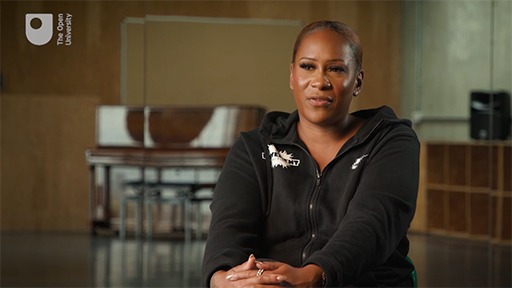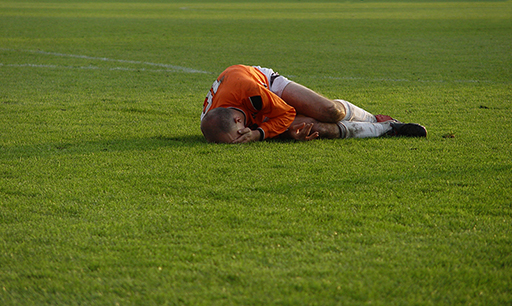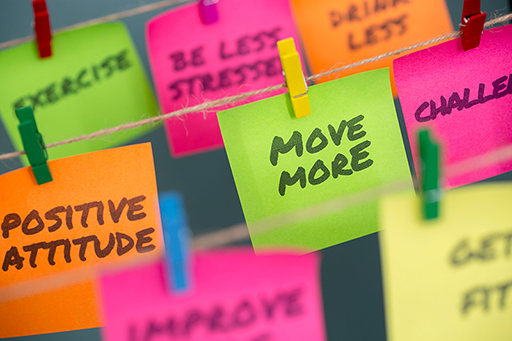3 Managing yourself – the power of self-management and resilience
Self-management and resilience are two important skills that play a significant role in an athlete’s performance and overall well-being. Let’s explore what each of these terms means in relation to sport:
- Self-management refers to an ability to regulate thoughts, emotions, and behaviours in order to achieve goals effectively. It involves maintaining focus, managing stress, and making conscious decisions about training, recovery, and performance.
- Resilience refers to an ability to adapt, recover, and thrive in the face of challenges, setbacks, and adversity. It involves maintaining a positive mindset, embracing failure as an opportunity for growth, and displaying mental toughness.
In the upcoming activities, you will explore each behaviour more extensively. The initial activity centres around a fundamental aspect of self-management: goal setting. While this focuses on a specific facet of the broader behaviour, it is a skill that readily translates into other areas of life. Before moving onto the first activity, it might be useful for you to familiarise yourself with the concept of SMART goals. A SMART goal is a goal-setting framework that helps individuals create clear, specific, and achievable objectives. Below is a brief overview of each component along with an example relating to performance context.
| GOAL: I want to improve personal motivation to enhance my performance in an upcoming dance competition. | ||
| Element of SMART | Overview, the goal should… | Example |
| Specific | be well-defined and clearly state what you want to achieve. | Spend at least 30 minutes each day visualising successful performance in the competition and engaging in positive self-talk. |
| Measurable | include criteria for measuring progress and success. | Keep a journal to track the time spent on visualisation and positive self-talk each day. |
| Achievable | be realistic and attainable. | Incorporate this visualisation and positive self-talk into the daily routine, such as during warm-ups or cool-downs, or before bed. |
| Relevant | be aligned with your broader objectives, values, and aspirations. | This goal is relevant as mental preparation and positive thinking can enhance motivation, increase confidence, and improve performance in sports. |
| Time-bound | have a specific time frame or deadline for completion. | Achieve this daily practice consistently for the 4 weeks leading up to the competition. |
Activity 2 Stepping up your game – developing self-management in sports
In this activity you will develop goal setting and action planning skills for effective self-management in the context of sports.
- Select one aspect of self-management in sport that you would like to improve. This could be time management, discipline, motivation, stress management, recovery, or something else.
- Create a SMART goal (or more than one if you wish) in relation to this area for improvement. You might want to break down an overarching goal into smaller, manageable steps or milestones.
- Consider potential challenges or obstacles that you may encounter and develop strategies to overcome them.
Answer
By engaging in this activity, you will have developed self-management skills through goal setting and action planning. The process of setting SMART goals and creating action plans will empower you to take proactive steps towards effective self-management in sports. Through reflection, evaluation, and ongoing practice, you can continue to refine your self-management skills, leading to improved performance, well-being, and personal growth.
In the next activity, you will examine resilience through the lens of a sports injury, an experience that you may have encountered first-hand.
Activity 3 Resilience unleashed – learning from Asha Philip’s journey of overcoming injury
The following video provides information and visual depictions of a sports injury. If you are not comfortable watching the video you can proceed directly to the questions below and answer those you are able to respond to.
If you are happy to do so, watch this video which features British gold medal-winning sprinter and former gymnast Asha Philip telling the story of her tough journey in sport and answer the questions that following:
Video: Asha Philip [Tip: hold Ctrl and click a link to open it in a new tab. (Hide tip)]
- How did Asha Philip demonstrate resilience and mental toughness in the face of her sports injury?
- Reflect on your own experiences in sports or other areas of life. Can you relate to Asha Philip’s journey? How have you demonstrated resilience and mental toughness in the face of setbacks?
- Imagine you are a coach or mentor. How would you support and guide others in developing resilience and mental toughness based on Asha Philip’s story?
Answer
Asha Philip’s journey of overcoming sports injury exemplifies the power of resilience and mental toughness in the face of adversity. Through her story, you have gained valuable insights into the challenges she faced and the strategies she employed to bounce back stronger than ever. This serves as a reminder that setbacks and challenges are an inherent part of any journey, but with the right mindset and approaches, they can be transformed into opportunities for growth and success. Remember, resilience is not something we are born with but a skill that can be developed and nurtured over time. Through self-reflection, determination, and a positive mindset, we can cultivate our own resilience and mental toughness, just like Asha Philip did, and reach new heights in our personal, athletic, and professional endeavours.
Both these skills stretch far beyond the confines of sport, contributing to personal and professional growth. Self-management is crucial in professional life as it allows individuals to take control of their actions, priorities, and productivity, leading to increased efficiency, effective time utilisation, and the ability to meet deadlines and deliver high-quality work. By developing self-management skills, individuals demonstrate reliability, discipline, and the ability to handle responsibilities independently, which not only enhances their own performance but also fosters trust, professionalism, and career advancement opportunities in the workplace (Cox, Al Daoud, and Rudd, 2013).
Resilience is an essential employability skill that provides numerous advantages in the professional realm. The capacity to recover from setbacks, embrace change, and uphold a positive mindset when confronted with challenges is pivotal in the dynamic and sometimes unpredictable working environment (Kertechian, 2023).
In the Spotlight
In this video you will hear from Leanne on how she looks after herself. She offers some great advice here!
Leanne briefly mentions her mental health struggles within this video. If you do not feel comfortable watching please continue to the next section.



